- Home
- Paul Christopher
The House of Special Purpose Page 2
The House of Special Purpose Read online
Page 2
He tapped out the cooling ash from his pipe and recharged it from the pouch he carried in his jacket. The sound of the pipe on stone sent a skittering flock of oystercatchers jumping into the air, small anxious shadows rising above the silhouetted shapes of the abbey ruins. The Beaulieu River was an ocean estuary and low tide had left a few small boats stranded on the muddy banks.
Everything looked much as it had the last time he’d seen Black, almost six months ago. According to Black the abbey had once been one of the few places in England that could offer someone full rights of sanctuary within its grounds. The river and its estuary were inclined to more warlike pursuits.
Two miles downstream was Buckler’s Hard, one of the locations where Nelson’s fleet had been built, including the great admiral’s favourite, Agamemnon. Beyond the long-abandoned town was the English Channel and beyond that France and a war that had swallowed Europe whole and was poised to suck in the rest of the world at the first opportunity.
Liddell heard the scraping of a shoe on stone. Morris Black was approaching him, hands stuffed into the pockets of an old shooting jacket that seemed to hang too loosely on the detective’s shoulders. The man seemed to have aged ten years since their last meeting. His hairline had receded even farther and grey showed at the temples now. His dark, intelligent eyes seemed sunken into their orbits and, though always lean, he seemed to have lost a great deal of weight. The word ‘cancer’ leapt into Liddell’s mind – the same disease that had taken Black’s beloved wife, Fay, from him only two years before.
Black stopped a few feet away and stared at Liddell. ‘I didn’t expect to see you quite as soon as this.’
‘No. It’s been less than six months.’
‘The last time I saw you, you wanted me to be MI5’s cuckoo in the SOE nest.’
‘That’s not why I’m here, Black. It’s rather more important than that.’
The detective looked surprised. ‘I see.’
‘I doubt that you do, actually. I’m not sure myself. At least not entirely.’
‘That doesn’t sound like you, Liddell. You’re the type that likes to know more than anyone else. I suppose it’s what makes you such a good spy.’
‘Perhaps. The point is, you’re needed.’
‘I’m needed here.’ Black smiled. ‘Or so they tell me.’
‘This is King and Country, I’m afraid. Quite literally.’
‘The royal family?’
‘Not the present one. The previous.’
‘Oh, Christ, not that little Nazi fop and his American tart.’
‘Presumably you are referring to the duke and duchess of Windsor. The answer is no, not that little Nazi fop and his American tart. I meant George the Fifth.’
‘He’s dead,’ said Black wearily. The royals bored him to death. There’s a rumour that his doctor put him out of his misery before midnight so they could meet the Times deadline for the following day.’
‘Droll, Black, very droll.’
‘I’m quite serious,’ the detective answered. He brought a flat tin of Players out of his jacket pocket, removed a cigarette and lit it. ‘Only one king at a time. If the one you’re concerned about is dead then you’re not talking about King and Country. You’re talking about history. Once upon a time I was a policeman, Liddell. I’ve never been a historian.’
‘Then consider this a matter of historical detection.’
‘You’re being obtuse, Captain. Get to the point.’
‘I’m afraid the point is a little obtuse. Sorry.’
‘A hint, then.’
‘All I can say at this point is that it has rather a lot to do with Mr H. G. Wells.’
* * *
True to its name, the Palm Court at the Roosevelt was full of palms, all of them planted in enormous Oriental-style pots. The room was round, the circle marked by alabaster Corinthian columns with gilded capitals. The furniture was bamboo, done in blue and gold, a settee and three comfortable chairs for each small round cocktail table, surfaced in black and white marble.
Only one table was occupied when Jane and Noel Busch arrived at the hotel. Two men sat on the settee and a third occupied one of the chairs. Jane recognised him: Percy ‘Sam’ Foxworth, the deputy director of the New York FBI. The two men on the settee were strangers. All three men stood as Jane approached. She smiled politely. One of the men on the settee was short, silver-haired and pudgy with very pale blue eyes. Put him in a cassock and he could have been an Irish parish priest. The other man was in his forties, dark-haired and wearing a very outdated brown suit. The silver-haired man was drinking what was either the largest Brandy Alexander in the world or a glass of milk. His companion was drinking beer and Foxworth wasn’t drinking anything. The only thing in front of him was a slim file folder. The silver-haired man gestured to one of the chairs directly opposite the settee. Jane seated herself, beginning to feel a little uneasy. Noel took the other one.
The silver-haired man made the introductions. ‘My name is William Donovan. Most people call me Bill. I’m a lawyer.’
Jane nodded, recognising him now. He was a war hero and was known for his political ambition. He was also a friend to presidents.
‘That’s like calling Moses a stonecutter,’ put in Noel. ‘Wild Bill has Duponts and Vanderbilts for clients. He’s also a major general.’
Donovan glared at Noel, then turned to the man beside him. ‘This is William Stephenson. We call him Little Bill because he’s so quiet.’ Jane examined the man. He looked like an accountant.
The man in the brown suit leaned forward and extended his hand. ‘Very pleased to meet you, Miss Todd. I’ve heard a great deal about you.’ The handshake was firm and the hard, flat accent identified the man as a Canadian.
Donovan tilted his head in Foxworth’s direction. ‘Sam I believe you already know.’
‘I’ve had the pleasure.’ Jane smiled, though it was hardly that. Two years before Foxworth had had her in handcuffs stewing in a makeshift jail cell at the New York World’s Fair.
Foxworth smiled in return. ‘Exciting times.’
‘Exciting enough to almost get me killed and I didn’t even get any pictures for my troubles.’
The FBI director flushed. ‘Well, that’s all in the past anyway.’
Jane took a deep breath and let it out slowly. ‘Gentlemen, I’ve just come from my sister’s funeral. I’m not really in the mood for reminiscing.’
Donovan got right to the point. ‘Do you think there’s going to be a war, Miss Todd?’
‘Certainly.’ Any idiot knew that. Hitler was crazy as a bedbug.
‘Where?’
‘Where it already is. Europe. Russia. The Mediterranean. North Africa.’
‘That’s not our war.’
‘That’s the whole point, Mr Donovan. We’ll be neutral right up until the minute someone drops a bomb on the Empire State Building. FDR needs a war all his own if he’s going to drag us into this thing without being thrown out of the White House once and for all.’
‘You think we’ll ever be directly at war? On our own?’
‘Yes.’ With FDR at the helm, it was probably inevitable, she thought.
‘With who?’
‘The Japs.’
‘Why?’
Jane sighed. ‘Is this all completely necessary, Mr Donovan?’
‘I believe so.’
‘All right. I think the Japs don’t have any choice. They want to take over China and the Far East and maybe even part of Russia. Hitler’s helping them do that and we’re trying to stop them. We’ve frozen their assets in America; we’ve got an embargo on oil, scrap iron, coal and every other strategic material you can think of. So do the Brits. Japan is an island and they don’t have many friends. Even according to Tojo they’ve only got enough oil for a year and a half. They either strangle economically or come to some kind of diplomatic agreement, which to them is the same thing as surrendering. They’ll fight to the death.’
‘But we’re already negotiating wi
th them.’
‘They’re buying time,’ said Jane, realising the older man was simply leading her along.
‘To what end?’
‘To strike.’
‘You really think they’ll strike first?’
‘Yes.’
‘Why?’
‘They don’t have any choice. They know they can’t actually win a long war with the United States. The best they can do is quickly knock us out of the running.’
‘And how would they do that, Miss Todd?’
‘By catching us flat-footed, probably in Hawaii. A sneak attack. Take out the Pacific Fleet and you own the Pacific. A perfect staging base for long-range bombers once they’ve invaded. A break in a six- or seven- thousand-mile supply line they can’t realistically hope to service.’
‘Anything else?’ asked Stephenson dryly.
‘I’d say the Aleutians are a pretty good bet. They could hopscotch their way right onto the mainland.’
‘You’ve thought about this a great deal,’ said Stephenson.
‘I read the papers.’ She turned to her friend. ‘I read Noel Busch in Newsweek.’ She shrugged her shoulders. ‘It doesn’t take some kind of swami.’
‘There’s a lot of people out there who would disagree with you.’
‘These days there’s two kinds of people walking around the streets, Mr Donovan. People with their hands over their ears and their eyes closed who refuse to even think about the possibility that war might come and the ones who know it’s coming and that it’s only a matter of when.’
‘I’d say that’s fairly close to the truth.’ Stephenson nodded. ‘Most people seem to be in a fog about the whole thing.’
‘I’d like you to come and work for us,’ said Donovan, leaning forward, his eyes locked onto hers.
‘Us, as in a law firm?’ Jane smiled. ‘But that’s not really what you are, is it? Not with Sam here and your mysterious friend.’
‘She’s a very intelligent woman,’ said Donovan, glancing at Noel.
‘She’s also in the room,’ Jane answered. ‘And she doesn’t like being talked about in the third person if you don’t mind.’
‘Mr Stephenson is the director of the British Security Coordination Office here in New York. General Donovan heads up the Coordinator of Information Office in Washington.’
‘Lot of coordination going on,’ said Jane. ‘What you really mean is that you’re spies.’ She turned to Noel. ‘And I suppose you’re one of them?’
‘I work for General Donovan on an occasional basis.’
‘You’re a recruiter.’
‘I suppose you could say that.’
‘What made you think I’d want to work for these people or vice versa? I’m no spy. You know that, Buschy.’
Foxworth flipped open the plain file folder in front of him. ‘You live in a fourth-floor walkup off Harlem Place in downtown L.A., you’re two months behind on your rent and your last two assignments have been for Hollywood Pic, one on William Lundigan doing The Man Who Talked Too Much and then a ‘where is he now’ piece on a cartoon character named Andy Pandy. You’ve got twenty-three dollars in the bank.’ Foxworth looked at Jane benevolently. ‘You’ve been running away from yourself ever since the World’s Fair thing and getting that scar on your cheek. We’re offering you a place to come home to.’
‘Golly, you make me feel warm all over,’ said Jane. ‘People like you don’t give something for nothing, Foxworth. Last time I had anything to do with you, I had my office blown up, various burns, cuts and broken bones, not to mention all my equipment being destroyed.’
‘Anything you lost will be replaced,’ said Donovan expansively. ‘And then some.’
‘Why?’
‘Because we need you, Miss Todd,’ Stephenson murmured.
‘One more time,’ said Jane. ‘Why?’
‘COI and BSC are working together,’ said Donovan, pushing his pudgy face forward. ‘We share a lot of people and a lot of information. Little Bill here is of the opinion that we’ve got a traitor in our midst.’
‘So arrest him.’
‘It’s not quite that easy,’ Donovan answered. ‘In the first place, we don’t know exactly who he is, and in the second place he’s got some documentation, or knows where it is, that could be very damaging to both England and the United States.’
‘I still don’t see what this has to do with me.’
‘According to both Mr Busch and Mr Foxworth, you are an eminently courageous woman capable and willing to take risks. You’re also a photographer and photography has a great deal to do with this particular assignment. In fact, it is fundamental.’
‘And I’m supposed to do this so I can get a few bucks and my cameras back?’
‘Perhaps you should do it for patriotic reasons,’ said Donovan, a little coldness creeping into his voice.
‘No offence, General. There’s nothing wrong with patriotism but getting the first bullet between the eyes is usually its only reward.’
‘What reward are you looking for?’
‘The one every journalist and photographer like me is going to be looking for in six months or a year.’
‘Which is?’ said Foxworth.
‘Credentials as a war correspondent. Both sides of the Atlantic and anywhere else you guys are going.’ Donovan gave Stephenson a quick glance. He nodded. Donovan turned back to Jane. ‘Done.’
‘Then I guess I’m your girl.’ She smiled, wondering just what in hell she was getting herself into.
Chapter Two
Wednesday, November 19, 1941
London
The taxi pulled up in front of No 13 Hanover Terrace and Morris Black and Guy Liddell climbed out into the watery early morning sunlight. On the far side of the long, curving terrace of imposing town houses was Regent’s Park. A few shovellers cutting through the thin mist stood motionless and ghostly over the lake, while the ducks left little waggling v’s in the gunmetal water like a breeze blown over mercury. A breath of frost on the grass. Too early for little boys and their boats, if any still existed in London, a little too late for civil servants from Primrose Hill taking a shortcut to Baker Street Station.
‘I’m still not entirely clear about all of this,’ said Black at the bottom of the steps. The tall windows on either side of the darkly painted front door were covered by long indigo-coloured curtains. The house looked almost as though it was in mourning.
‘It’s a very delicate political situation,’ Liddell responded with a worried look.
‘Wells is hardly a political figure. He’s a writer.’
‘And a social critic. A powerful one.’
‘He writes stories about invasions from Mars and people who travel through time,’ said Black, grimacing. ‘If that’s social criticism, I’m a little green man.’
‘He also wrote The Outline of History, not to mention his friendship with Lord Beaverbrook. To compound the situation he stole away Maxim Gorky’s mistress.’
‘Another writer?’ Black shook his head. ‘This is becoming absurd, Liddell. We’re in the middle of a bloody war and you’re going on about Russian writers and their paramours.’
‘Gorky’s mistress was a woman named Countess Moura Zakrevskaia Benckendorff. Her real name is Moura Budberg.’
‘Is stealing away a man’s mistress some kind of crime?’
‘As well as being Wells’s mistress, Moura Budberg is an NKVD agent.’
Black looked startled for a moment. ‘Then arrest her.’
‘Can’t be done.’ They climbed the steps and Liddell tapped the knocker.
‘Why not?’ asked Black. He was beginning to sense some sort of hidden agenda coming into play.
‘Because other than Moura herself the only person who says she’s a spy is Wells and Gorky before her.’
‘She admits to being an agent of the secret police?’
‘To them, yes. It seems to be her ploy. She throws herself on the mercy of her gentlemen friends and tells them how she was blackm
ailed into becoming an agent. She supposedly fled to England by escaping through Finland and was introduced to all of Wells’s important friends – Beaverbrook included. Wells found out she was a complete fraud. He was doing a series of articles for the Guardian about the Latvian crisis a few years ago and ran into her in Riga. Apparently she returns to Russia three or four times a year, or she did before war broke out.’
‘Does she have any connection with the Soviet embassy here in London?’ What primrose path was Liddell taking him down?
‘Not to our knowledge.’
‘Then I don’t see your so-called delicate political situation.’
‘It doesn’t stop with Gorky or Wells.’
‘She’s someone else’s mistress as well?’ This was becoming farce.
‘I’m afraid so.’
‘Who?’
‘I can’t say at the moment. The man concerned is married, has children and the word is he’s on next year’s civil list. He also has a position of some power in the Foreign Office.’
‘Foreign Office?’
Liddell let out a long, heartfelt sigh. ‘Supposedly he works for the Political Intelligence Department but I’m afraid he’s also one of us. SIS. Has been since Cummings’s day.’
‘A spy?’ Black made a snorting sound. ‘Speak for yourself, Liddell. This man sounds like a lifetime professional. I’m only in for the duration. One of these years I’m going back to the Yard.’
‘His career aspirations are irrelevant, Black, as are yours. This has to do with a single event in his life. Twenty-three years ago.’
Black did the calculation in his head: 1918. The end of the war. ‘Presumably a mistake.’
‘A stupendous one.’
‘To do with this Budberg woman?’
‘No, but there is no doubt that she would use the information to good effect if we ever saw fit to move against her.’
‘She’s blackmailing His Majesty’s government?’ God, where was Victoria when you really needed her? She’d have had the woman’s head, literally.

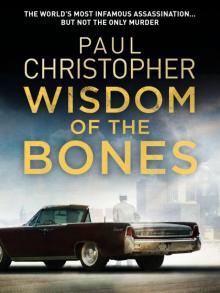 Wisdom of the Bones
Wisdom of the Bones The House of Special Purpose
The House of Special Purpose The Second Assassin
The Second Assassin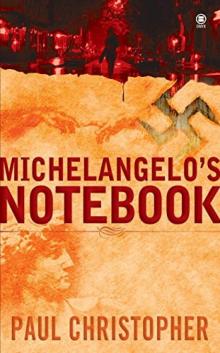 Michelangelo's Notebook
Michelangelo's Notebook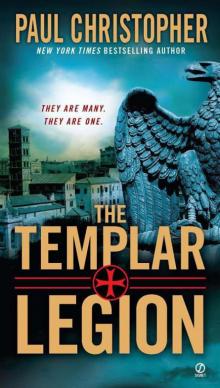 Templar Legion
Templar Legion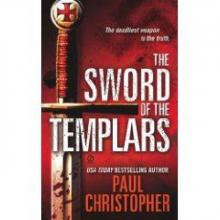 The Sword of the Templars t-1
The Sword of the Templars t-1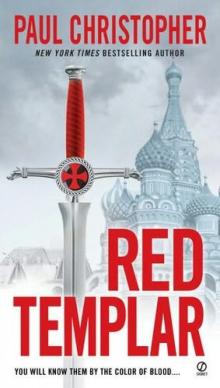 Red Templar
Red Templar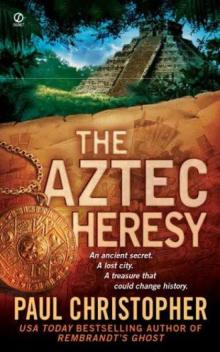 The Aztec Heresy
The Aztec Heresy The Templar Legion
The Templar Legion Rembrandt's Ghost
Rembrandt's Ghost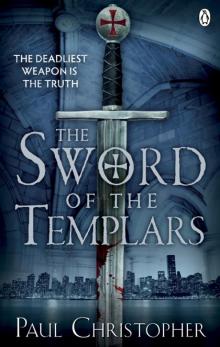 Sword of the Templars
Sword of the Templars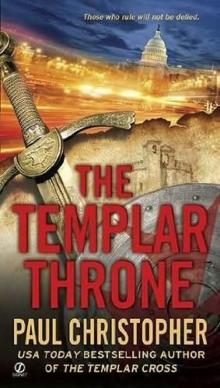 The Templar throne t-3
The Templar throne t-3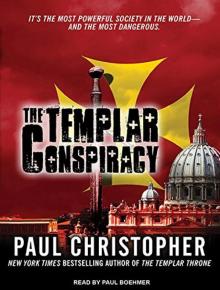 The Templar Conspiracy
The Templar Conspiracy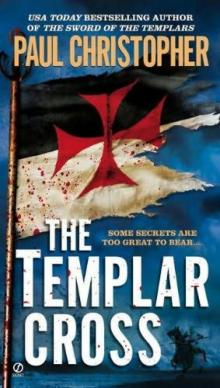 The Templar Cross t-2
The Templar Cross t-2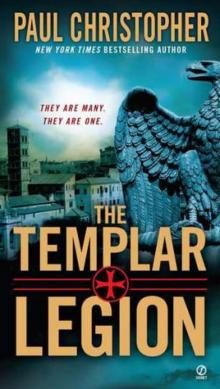 The Templar Legion t-5
The Templar Legion t-5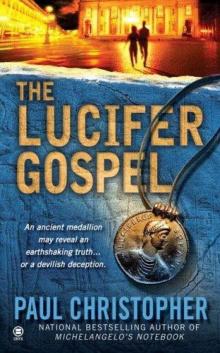 The Lucifer Gospel
The Lucifer Gospel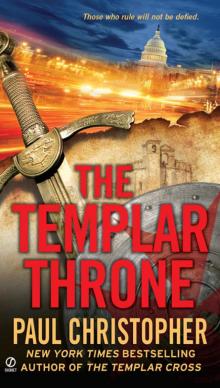 Templar Throne
Templar Throne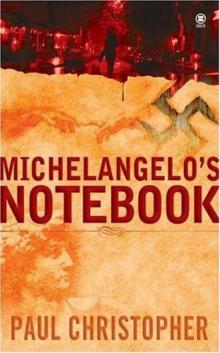 Michelangelo_s Notebook fr-1
Michelangelo_s Notebook fr-1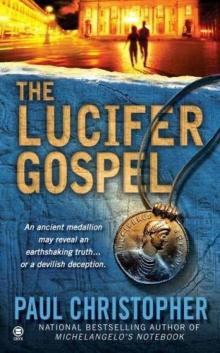 The Lucifer Gospel fr-2
The Lucifer Gospel fr-2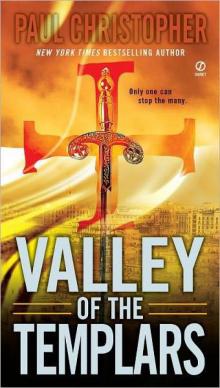 Valley of the Templars ts-7
Valley of the Templars ts-7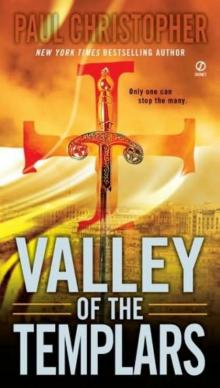 Valley of the Templars
Valley of the Templars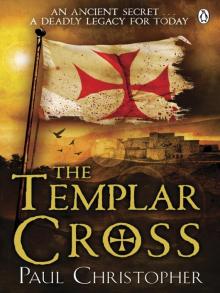 Templar Cross
Templar Cross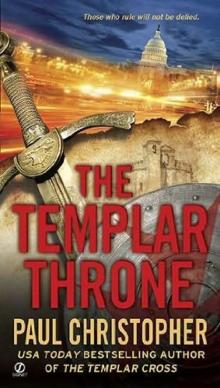 The Templar Throne
The Templar Throne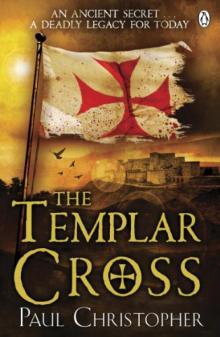 The Templar Cross
The Templar Cross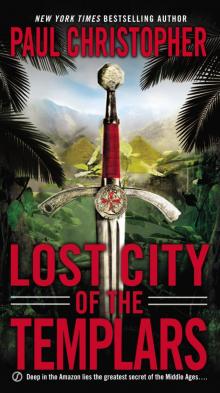 Lost City of the Templars
Lost City of the Templars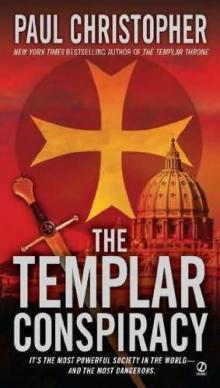 The Templar conspiracy t-4
The Templar conspiracy t-4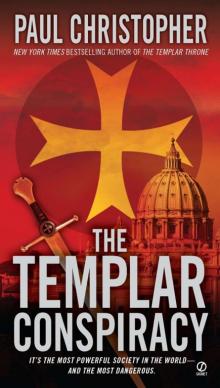 Templar Conspiracy
Templar Conspiracy